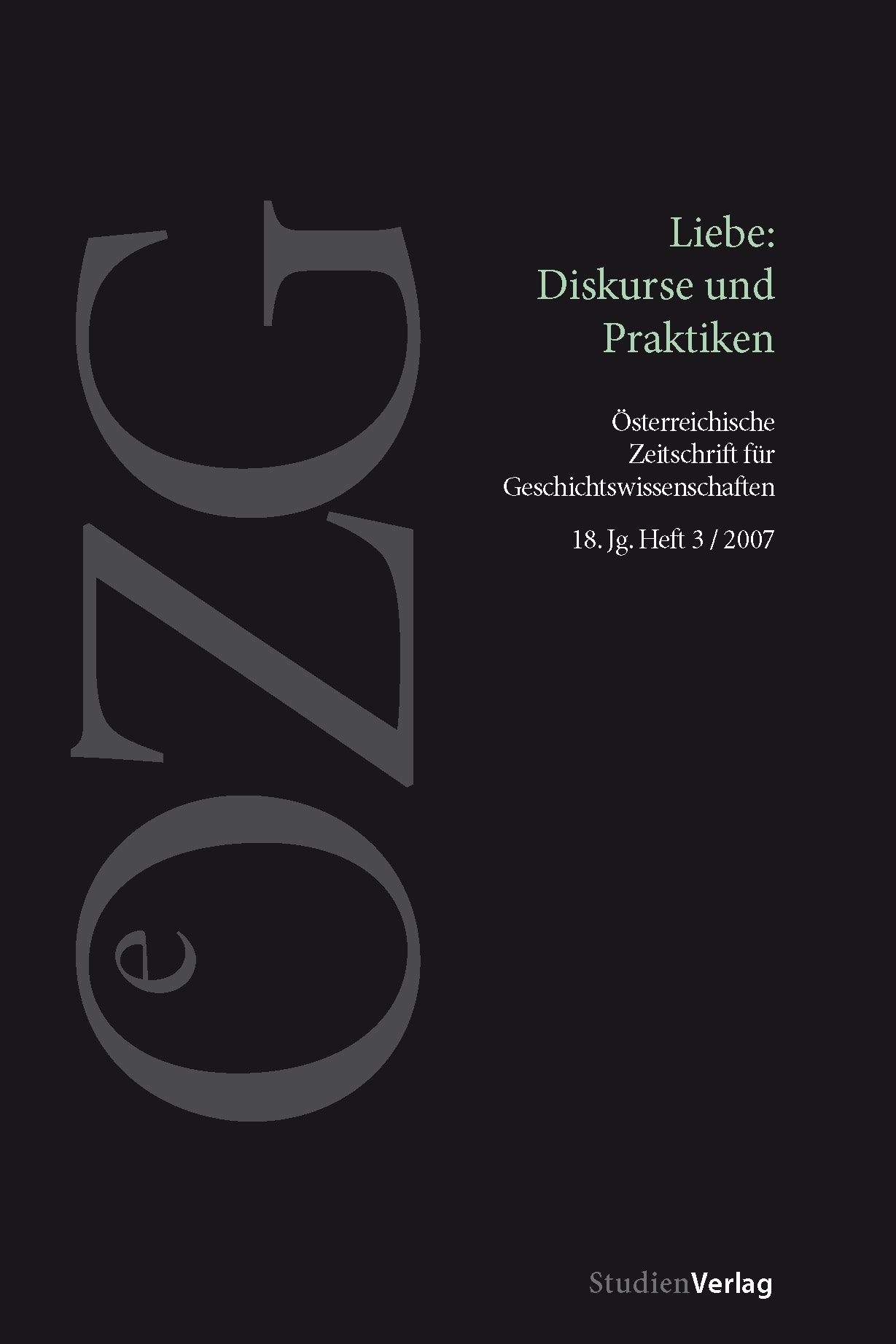The influence of the love-discourse on the subject-constitution of female, German speaking rap-artists
DOI:
https://doi.org/10.25365/oezg-2007-18-3-7Abstract
Hiphop as a globally present youth culture is traditionally male dominated. Thus, female rap artists can constitute themselves as subjects (as ›I‹) within the field of rap/hiphop only from a marginalized position. Butler (engl. 1993; dt. 1995) states that the constitution of subjects depends on one side on the acknowledgement by other persons, and on the other side on the appropriation and variation of social discourses. Especially within the highly socially coded love-discourse the relationship between subjects has been constantly scrutinized over the last hundreds of years. Hence, this article focuses on how female German speaking rappers grasp the love-discourse in their song-lyrics and explore the relation between ›I‹ and ›you‹. By a close reading of the love-lyrics published between 1998 and 2006 by six female German and Austrian rap-artists answers to the following questions are to be found: Which (historical) love-discourse is picked up by the rappers? Are the ›I‹ and the ›you‹ sexually marked? And if so, in which way? Does the relation between ›I‹ and ›you‹ strengthen or undermine the independent subject-position of the speaking ›I‹? It can be shown that the love-discourse expressed in German rap-lyrics is rather traditional, as many typical images of the traditional discourse of ›romantic love‹ prove. Both ›I‹ and ›you‹ are sexually marked in a surprisingly clear-cut way. Still, the analyses of some rare examples demonstrates the subversive potential of German rap in reference to a deconstruction of the traditional love-discourse as well as of overcome ideas of gender-identity.


